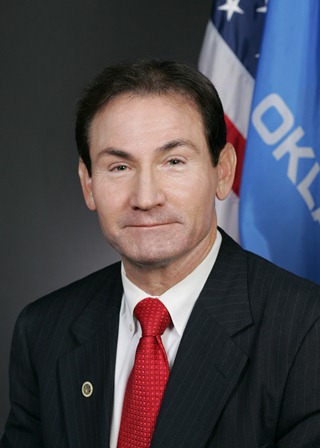Sharp disappointed in lack of consideration of bill to ban texting while driving
 Sen. Ron Sharp
Sen. Ron Sharp
Last year, approximately 2,000 Oklahomans were involved in crashes caused by drivers distracted by their cell phones and other electronic devices. More than 700 of those individuals sustained injuries while ten of them were killed according to the Oklahoma Highway Safety Office. On Wednesday, the Senate sent Senate Bill 442 prohibiting texting while driving back to committee where Sen. Ron Sharp says his bill will most likely die.
“When people text and drive they’re playing Russian roulette not only with their own lives but with those of everyone else on the road. These crashes result in drivers spending thousands of dollars on vehicle repairs as well as in car and health insurance costs, while the others are burying their loved ones because someone couldn’t wait until they got home to send that last text,” said Sharp, R-Shawnee. “I’m so disappointed that my colleagues wouldn’t consider this important bill that will allow Oklahoma to join the 42 other states that have outlawed this dangerous and deadly behavior.”
Under SB 442, first offenses would result in a fine, including court costs, of up to $30 while second and subsequent offenses would result in a fine of up to $50.
SB 442 was requested by AAA. Chuck Mai, vice president of public affairs for AAA, said that texting while driving is one of the main concerns of their members.
“AAA Oklahoma supports driver anti-texting legislation for one reason: our members say they consider distracted drivers a significant threat to their safety on the road, right up there with drunk drivers. And when it comes to driver distractions, nothing matches texting and checking email in terms of risk,” said Mai. “What’s worse, texting while behind the wheel is at epidemic proportions right now in Oklahoma. A law banning this dangerous practice has never been needed more. AAA knows lives will be saved.”
The bill provides exemptions for law enforcement and safety personnel; drivers of authorized emergency vehicles; someone operating an amateur radio or who holds a current, valid amateur radio station license issued by the FCC; or those who use a cell phone solely to contact an emergency response operator, a hospital, physician’s office, health clinic, a provider of ambulance or firefighting services, or a law enforcement agency in emergency situations.
SB 442 was referred back to the Senate Public Safety Committee.
“I’m very disappointed with this procedural vote that prevented debate on this important issue,” said Sharp. “This bill could have saved lives and prevented personal injuries. According to a recent AAA poll, 94 percent of their members support this legislation but, unfortunately, the people’s voice was not represented.”
 Oklahoma Senate
Oklahoma Senate

